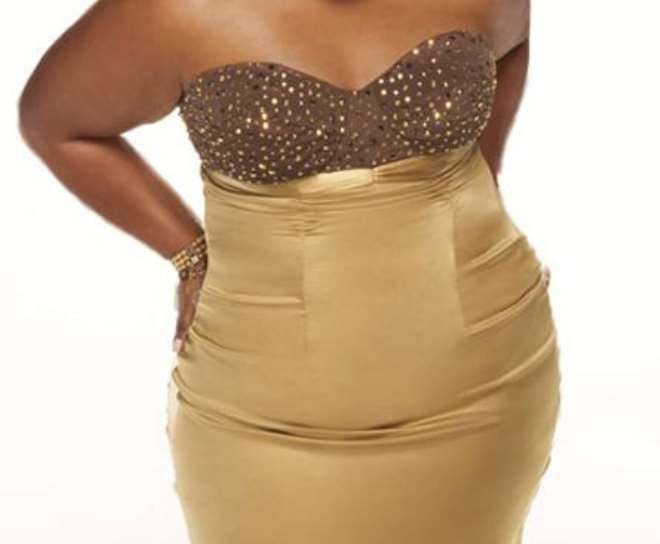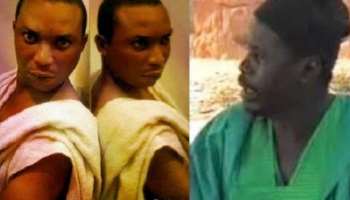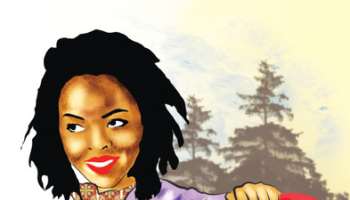Plus-sized women are people too… really!
A perfectly wonderful day was ruined on Tuesday when I decided to go shopping after work. Normally this would be the highlight of the day, but not this time. First, there was the guilt that afflicts every recovering shopaholic who falls off the wagon. Second, there was the pesky little problem of finding the right store for the right outfit and in the right size.
It all began with an impulse to get a new outfit to wear for my daughter's high school graduation. (Note to recovering shopaholics: impulse buying is a bad, bad idea!) I went to Dressbarn, my favorite clothing store, only to find it gone. I was upset but glad for resisting the store so long that I wasn't aware of the closing. That, my friend, is a good thing. Not so good was the fact that the nearest Dressbarn is 15 minutes away with no guarantees that it too hadn't closed – forever or for the day. Then I remembered there was a Catherine's in the neighborhood.
Catherine's is a store for Plus Women, a treasure trove for many “real” women. It is quite frustrating to find an outfit that one really likes but unavailable in the right size. Also, items on sale are usually not in sizes that fit Plus women. It's as if manufacturers ask for more money for the extra fabric and the stores add punitive costs: “If you don't like it, go lose some weight, Fatso!”
But even Catherine's is not infallible. It appears that those who design clothes for the store believe that Plus women should be so grateful to find clothes in their sizes that they shouldn't be asking for fashionable styles. And so I spent about an hour wading through yards and yards of ugly clothes, as I searched for something marginally acceptable. I should just have gone to Dressbarn, a store that caters to women of all sizes, shapes and ages, and has stylish clothes and accessories for all seasons and occasions. Besides, my body dwells on the size borderlands and that makes me under-qualified to shop at Catherine's.
Tuesday's encounter underscored a constant issue of concern for me: American society's concept of the perfect female body. It is ironic that while the United States is the most obese country in the world, as measured by body mass index (BMI) exceeding 30, the society shows such palpable contempt for fat women. There is an expectation that every woman should look like the okporoko, photo-shopped “young thangs” on the cover of Seventeen. If they don't, then it must be because they are lazy, indulgent and eat too much. That may be so, but that shouldn't make society strip a large swath of women of their basic humanity. Fat women are people too.
Also, Plus women are generally dismissed as asexual objects and thus incapable of giving or receiving love and desire. The clothes designed for them demonstrate this. Eka-Etim-Edem-looking rags are hastily stitched together and put on the rack for Plus women. (Etim Edem is a Calabar motor park near Bogobiri, once a Hausa ghetto but since modernized to house banks, hotels, suya and tailoring stores, and mini “banks of the north.”) How can a woman feel attractive and sexy wearing Catherine's clothes, some of which come in four-piece monstrosities – pants, camisoles, long-sleeve jackets and shawls? It seems that since we can't legislate Plus women out of public spaces, we must keep them out of view by hiding them inside ugly clothes.
I have never been to a store for Plus men's clothes, but I have a feeling that the clothes there are not as ugly as Plus women's. To start with, the sizes are called “Big and Tall” (with a store by that name too). “Big” and “tall” have positive mental associations. Most women want tall men. Indeed, I don't know of any woman who sets out to date or marry a short man, even if she ends up with one. (And if you are looking in Akwa Ibom, you will invariably find one – the quintessential “Ete Men” that we, the Ekaetes, absolutely love …). On the other hand, Plus connotes “surplus,” “too much,” “excess baggage” and “superfluous.” Not at all sexy!
In teaching body image, a basic topic in Women's Studies, I tell my North American students that “skinny” is cultural and specific to the West. In my culture, we not only love Plus women but we fatten up skinny girls. Then I go to Nigeria and find that the rage among middle class city women is weight loss, and gyms are springing up everywhere. Women are dieting, wearing Spanx (or “biker shorts” as they call it there) to give their hips a slim look, and Nollywood presents skinny bombshells as female leads. What happened to the curvaceous, booty-licious Ikebe, and (Shina Peter's) “figure eight” types hitherto coveted by generations of Nigerian women?
In the past, my mom would say I looked ill and should eat more (with skinny translating as illness). Now, she says “You look healthy” which we understand is euphemism for “Nne, you need to lose some weight.” The other day, after dressing up to accompany my middle daughter to her last orchestra concert in high school, I asked her how I looked. She said: “You look like my mother.” I wasn't sure if that was a compliment. Mothers used to look “healthy” – outcome of pregnancies, childbirth confinement periods and “good” food. Now that I've finally achieved the “mother-look,” its value has become ambiguous.
Incidentally, the daughter for whose graduation I went clothes-shopping wants to design celebrity clothes on the side, while living “da life” as a rich Hollywood film producer. (She's going in to study Theatre, majoring in film production, or at least that is the plan as she begins university this August). I pray she'll achieve glory and gold by designing sexy and flattering clothes for healthy women and those like her mother who reside on the size borderlands.
Until then, I guess I should increase the duration of my early morning walks from 20 to 40 minutes. Doesn't that mean waking up at 5:40 a.m. instead of 6 a.m.? Oh well, forget it … there is always a Dressbarn!
Latest News
-
 "If You're For Me, I Am For You" - Cubana Chief P
"If You're For Me, I Am For You" - Cubana Chief P -
 "3 Days To Go" - Femi Adebayo Urges Fans To Get S
"3 Days To Go" - Femi Adebayo Urges Fans To Get S -
 "Stop Asking Me Questions About Speed Darlington"
"Stop Asking Me Questions About Speed Darlington" -
 "Benue Is The Most Underdeveloped State I've Ever
"Benue Is The Most Underdeveloped State I've Ever -
 Stan Alieke Urges Young Professionals To Take Lin
Stan Alieke Urges Young Professionals To Take Lin -
 Chizzy Alichi Teases Fans With Baby Reveal, Promot
Chizzy Alichi Teases Fans With Baby Reveal, Promot -
 "I'm Not Wearing Makeup From July 4th Till Decemb
"I'm Not Wearing Makeup From July 4th Till Decemb -
 "Stop The Challenge Of Mocking Kids With Down Syn
"Stop The Challenge Of Mocking Kids With Down Syn -
 Regina Daniels Celebrates Sons As They Mark Birthd
Regina Daniels Celebrates Sons As They Mark Birthd -
 Speed Darlington Threatens To Sue NAPTIP For Defam
Speed Darlington Threatens To Sue NAPTIP For Defam














